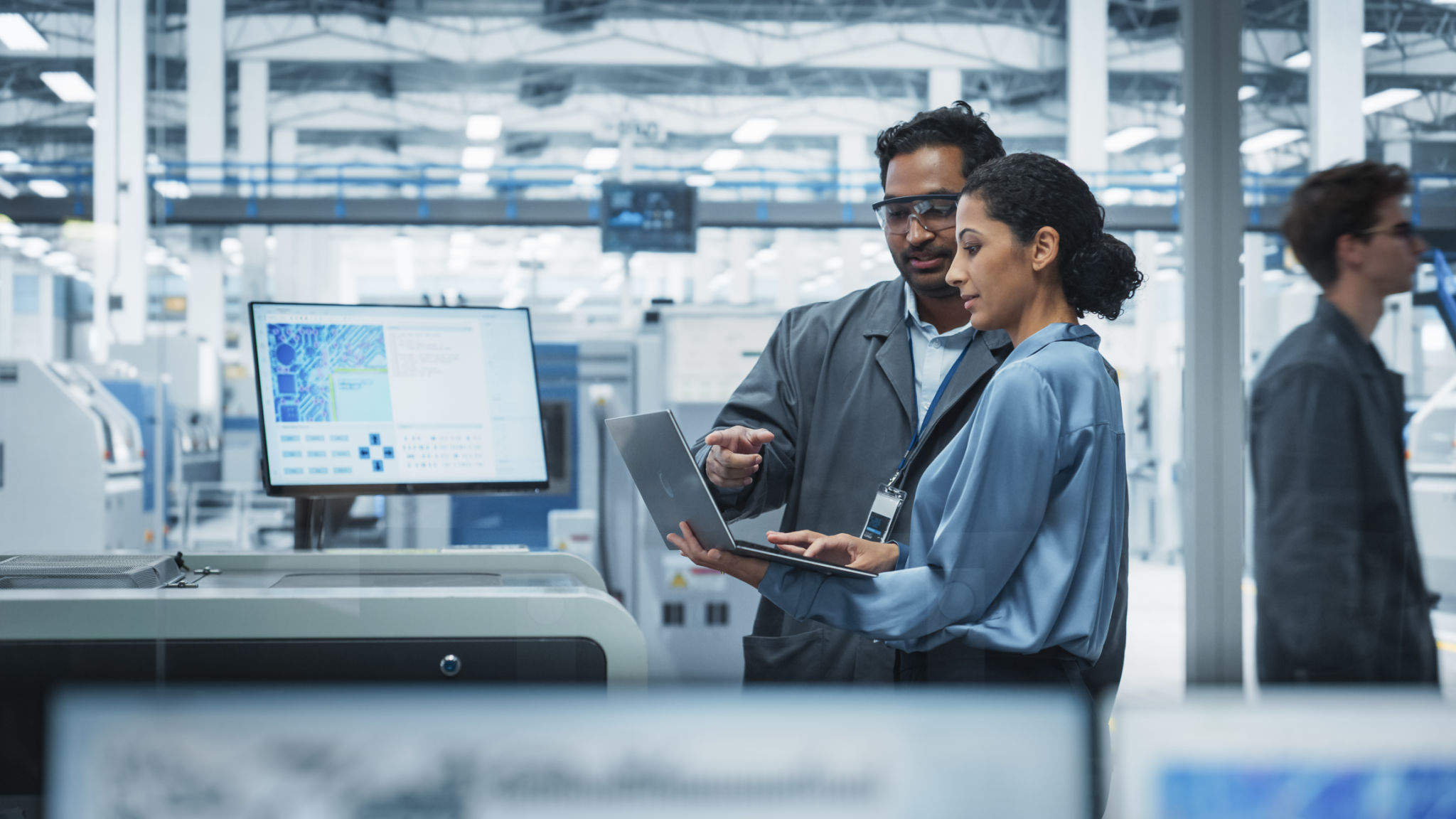Expert Tips: Implementing AI Solutions for Manufacturing Efficiency
Understanding the Role of AI in Manufacturing
Artificial Intelligence (AI) is revolutionizing the manufacturing industry by driving efficiency and innovation. From predictive maintenance to quality control, AI applications are paving the way for smarter and more productive manufacturing processes. By leveraging AI, manufacturers can not only enhance productivity but also reduce costs and increase competitiveness in the market.
One of the primary benefits of implementing AI in manufacturing is its ability to process large volumes of data quickly and accurately. This capability allows manufacturers to gain deeper insights into their operations, enabling them to make informed decisions and optimize processes. Whether it's through machine learning algorithms or advanced analytics, AI provides the tools necessary for improving manufacturing efficiency.

Steps to Successfully Implement AI Solutions
Implementing AI solutions in manufacturing requires a strategic approach. The first step is to clearly define the specific problems or areas where AI can add value. This might include reducing downtime, improving product quality, or enhancing supply chain management. Once these areas are identified, companies can begin exploring appropriate AI technologies and solutions.
Next, it's essential to ensure that there is a robust data infrastructure in place. AI thrives on data, and having access to high-quality, relevant data is crucial for its success. Manufacturers should invest in data collection systems and ensure that their data is clean and well-organized. This will facilitate seamless integration of AI technologies and maximize their potential impact.

Engaging Experts and Continuous Training
Collaborating with AI experts and technology partners can significantly ease the implementation process. These experts bring valuable knowledge and experience, helping manufacturers navigate the complexities of AI adoption. In addition, continuous training for staff is essential to ensure they are equipped to work alongside AI technologies effectively.
Employees should be educated about how AI will affect their roles and the potential benefits it brings. This includes training on new tools and processes, as well as fostering a culture of innovation and adaptability. By empowering employees with the skills they need, manufacturers can ensure a smoother transition and greater acceptance of AI solutions.

Overcoming Challenges in AI Implementation
While the benefits of AI are clear, manufacturers may face several challenges during implementation. One common hurdle is the initial cost of investing in AI technologies. However, it's important to view this as a long-term investment that will yield significant returns over time through enhanced efficiency and reduced operational costs.
Another challenge is ensuring data security and privacy. As manufacturers rely on vast amounts of data, protecting this information from cyber threats is crucial. Implementing robust cybersecurity measures and staying compliant with data regulations will help mitigate these risks. By addressing these challenges proactively, manufacturers can ensure a successful AI adoption journey.

The Future of AI in Manufacturing
The future of manufacturing is undoubtedly intertwined with AI advancements. As technology continues to evolve, we can expect even more sophisticated AI applications that will further enhance manufacturing efficiency. From autonomous robots to advanced machine vision systems, the possibilities are endless.
Manufacturers who embrace AI today will be better positioned to adapt to future trends and remain competitive in an ever-changing market. By staying informed about the latest developments in AI technologies and continuously refining their strategies, manufacturers can unlock the full potential of AI and drive sustainable growth.